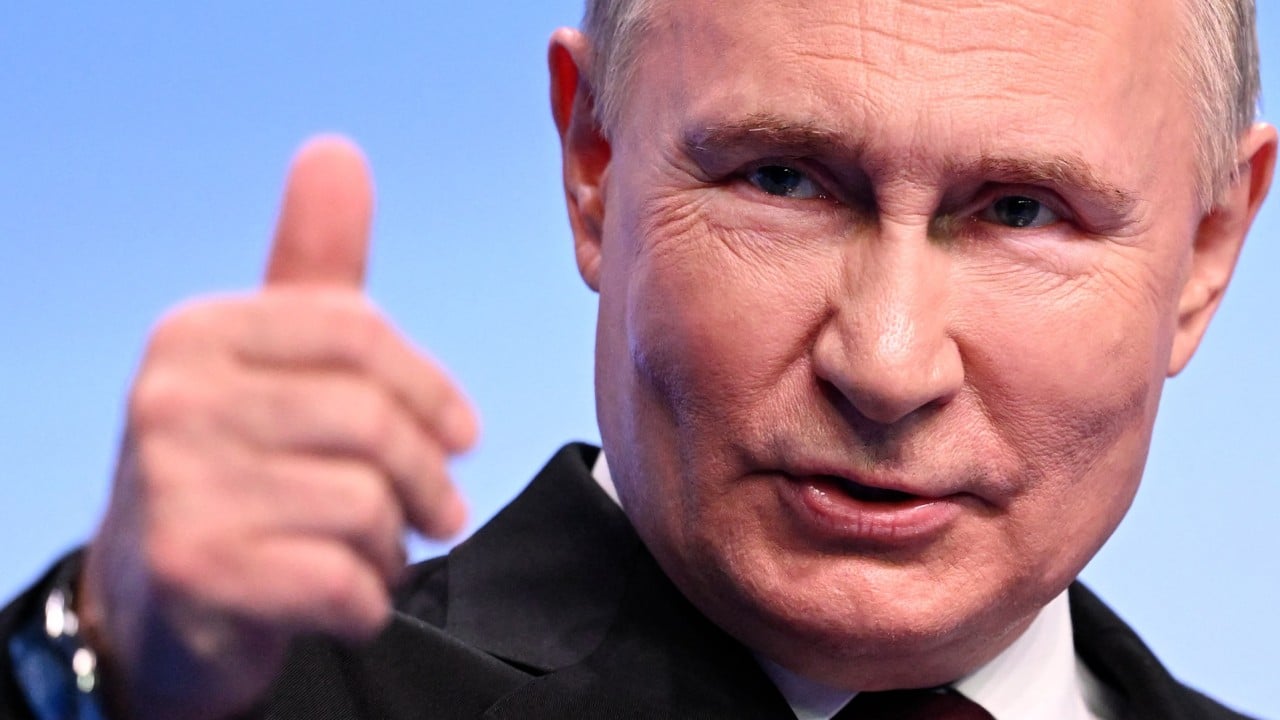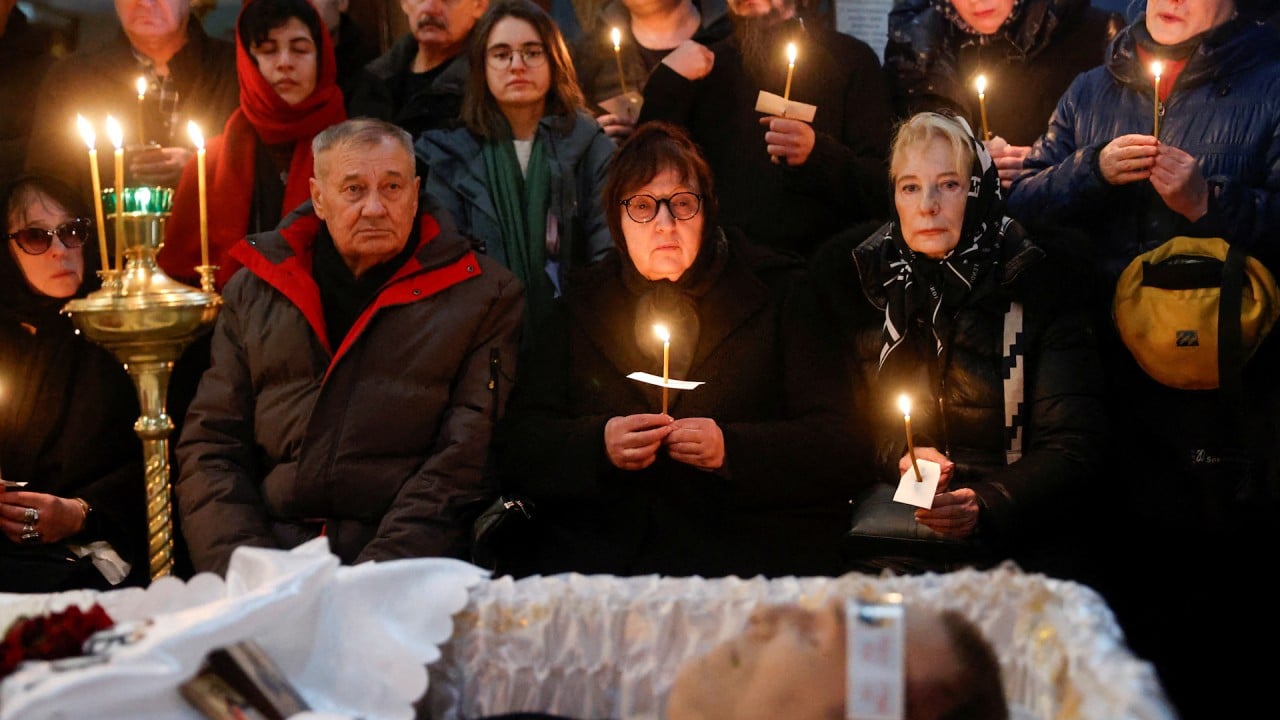
China-Russia ties set to deepen with another presidential term for Putin
- Chinese president congratulates his Russian counterpart, saying the result reflects the people’s support
- Cooperation between the two countries expected to grow, compounding Beijing’s tensions with European nations, observer says
Xi said the results showed the Russian people’s support for Putin amid the country’s “challenges”.
“China attaches great importance to the development of China-Russia relations and is willing to maintain close communication with Russia to promote the sustained, healthy, stable and in-depth development of the China-Russia comprehensive strategic partnership of coordination in a new era,” state news agency Xinhua quoted Xi as saying.
Wang Yiwei, a Renmin University professor specialising in Europe affairs, said the results aligned with China’s expectations.
“China hopes that its relationship with Russia will be stable. As long as it is under the leadership of Putin, China-Russia relations will definitely continue to consolidate,” Wang said.
“The leaders have had a profound working friendship for more than 10 years. Trust between the leaders is very important.”
Xi and Putin have met 42 times since Xi came to power in 2013. They last met in October during the belt and road forum in Beijing, where they reaffirmed deepening political trust between the two countries.
One opportunity for the two to talk will be when Russia hosts the Brics summit in Kazan in October, a year after the group expanded from five members to 10.
Xi and Putin are also expected to attend the annual summit of the Shanghai Cooperation Organisation in Kazakhstan later this year.
The presidential election was held against the backdrop of Russia’s grinding conflict with Ukraine in which neither side has shown interest in entering serious peace talks.
China has also been criticised by the West over its economic support for Russia and a number of Chinese companies have been sanctioned by the European Union for helping Russia to circumvent sanctions.
Amid those sanctions, trade between China and Russia reached a record US$240 billion last year. The two countries have also stepped up currency cooperation, conducting more than 90 per cent of their transactions in either yuan or roubles.
Putin warns West a Russia-Nato conflict is just a step from WWIII
Wu Fei, a Jinan University professor specialising in Russian studies, said China’s policy towards Russia would remain highly “stable” following Putin’s re-election.
“There is still a lot of room for cooperation between China and Russia, both economically and geopolitically,” he said.
Björn Alexander Düben, an assistant professor specialising in China-Russia relations at Jilin University in northeast China, agreed, saying Beijing’s ties with Moscow would remain strong despite Western scrutiny.
However, China’s close relations with Russia and its rivalry with the United States have complicated Beijing’s efforts to improve ties with EU countries.
“This is a very difficult balancing act for China … If Beijing was to visibly distance itself from Moscow, this would probably make it easier to [rebuild] cooperative relations with the EU countries, but I don’t think that Beijing would be willing to engage in such a trade-off at Russia’s expense,” Düben said.
Wang, from Renmin University, said there was a lot of misunderstanding about China’s ties with Russia, a partnership that Beijing usually describes as “non-alliance, non-confrontation and not targeting any third party”.
“The purpose of closer relations between China and Russia is not to confront Nato, the United States, or the West. This is not what China hopes,” he said.
“The Chinese especially do not want Russia to be used as a bargaining chip against the West, because China still hopes to maintain a relatively good relationship with the West. This is different from Russia, which already has very tense relations with the West.”

 - Kawala Xie.jpg?itok=NogZcyZ-&v=1661304068)

